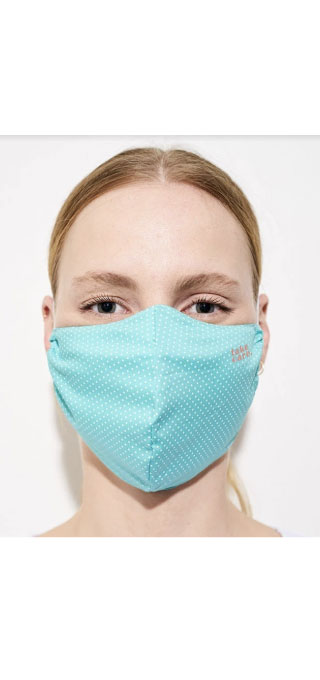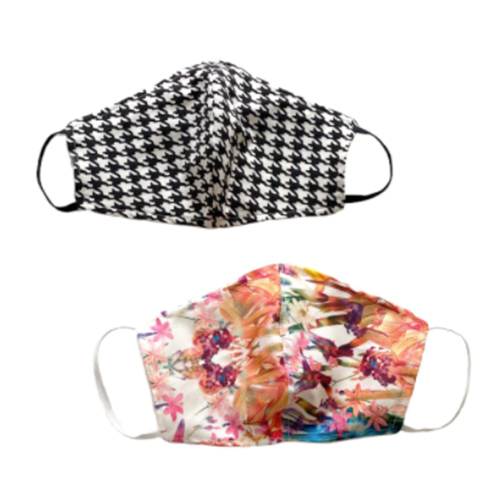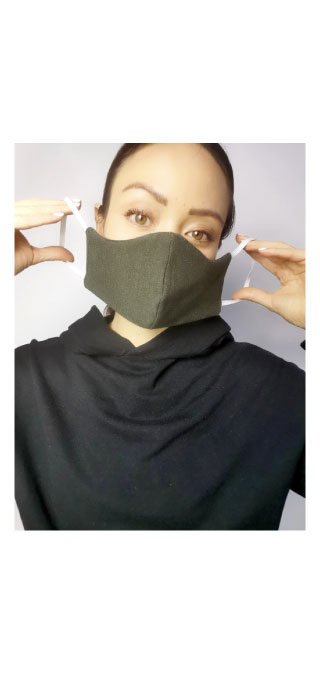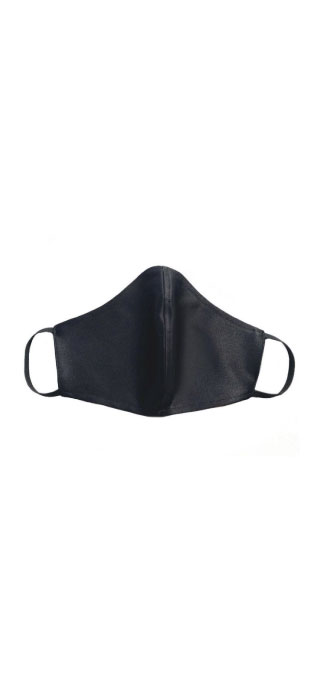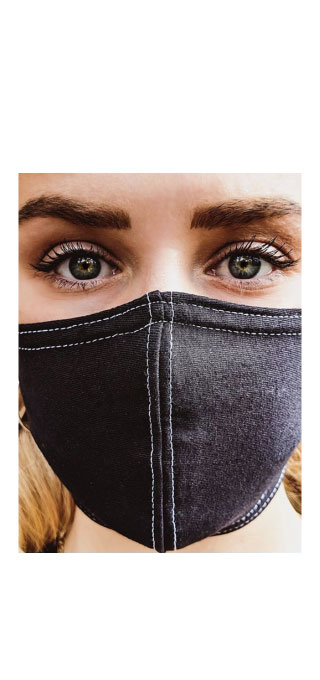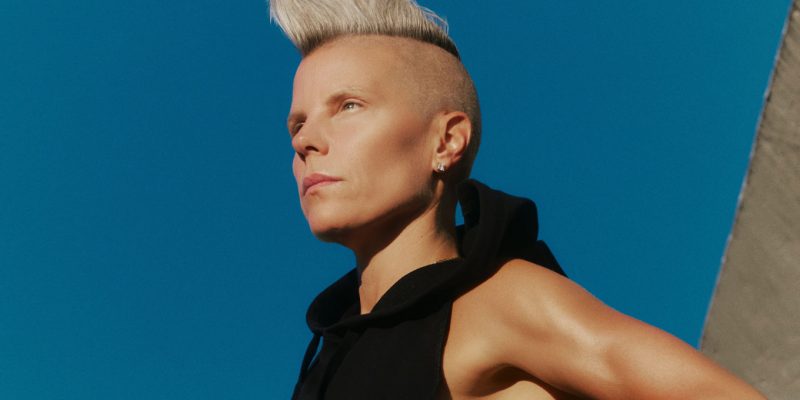Society
This Three-Week-Old Canadian Start-Up Has Sold 80,000 Non-Medical Masks
“The goal is to help relieve the pressure for medical grade PPE for frontline workers, be able to provide an alternative item for non-healthcare workers and create jobs.”
by : Emily MacCulloch- Apr 15th, 2020
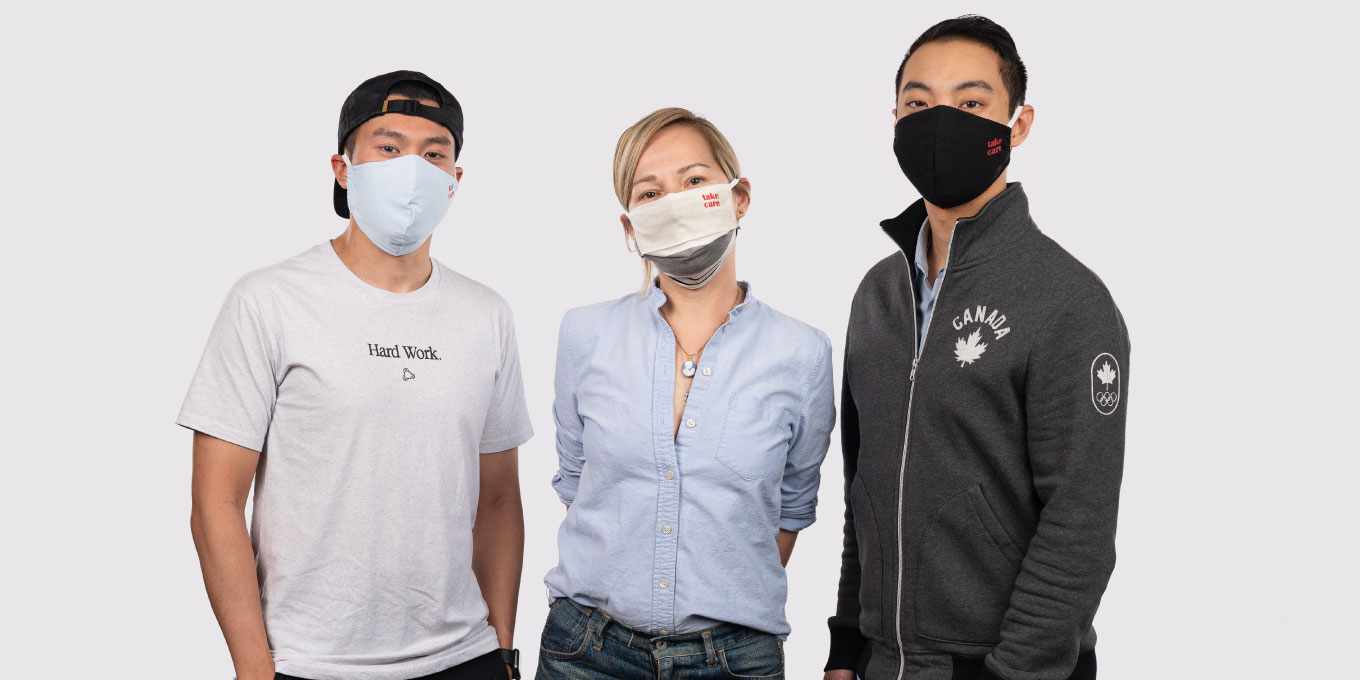
Left to right: Larry Lau, Anna-Maria Mountfort and Kevin Vuong. Rest assured, they practiced social distancing and the photo was edited to combine the three of them.
UPDATE: Take Care Supply is aware of complaints about shipping delays and the brand says it’s doing everything it can to make the order process as easy as possible. “We have already addressed all of the challenges that are within our control – we’ve pivoted to using local manufacturers for raw materials, have transitioned to using a Canadian supplier that knits and weaves the fabric here in Toronto and use another local supplier to dye the fabric. Orders are [now] shipped within two days,” co-founder Larry Lau told us over email. “Due to COVID-19, couriers are facing their own challenges [with the] volume[of deliveries]. Unfortunately, this is out of our control. We are regularly monitoring these orders and tracking for customers ad [couriers] work to fix their backlog.”
Find a comprehensive list of over 40 Canadian-made masks here.
Since the beginning of the coronavirus pandemic, messaging on wearing non-medical masks to prevent the spread of COVID-19 has been mixed. But on April 6th, Canada’s Chief Public Health Officer, Dr. Theresa Tam, said wearing non-medical masks, alongside other key measures like social distancing and hand washing, could help prevent people who are pre-symptomatic or asymptomatic, yet contagious, from unwittingly spreading the coronavirus in public settings, like at the grocery store, where distancing in difficult. (Note that wearing non-medical masks or face coverings have not been proven to protect the person wearing them from coronavirus.) Since N95 and surgical masks should be reserved for frontline and healthcare workers, there has been a recent surge in demand for non-medical masks.
In March, Toronto-based friends Anna-Maria Mountfort, Kevin Vuong and Larry Lau started Take Care Supply and began manufacturing fabric masks to help relieve the shortage of masks during the pandemic. In just over two weeks they’ve sold over 80,000 masks and new orders are streaming in daily.
We spoke with Take Care Supply co-founder Larry Lau and asked him to share more about the brand’s important initiative and how they got started.
How did Take Care Supply start?
About three weeks ago, Anna-Maria Mountfort, a Canadian accessories fashion designer and owner of mimiTENS, a kid’s mitten business, and Kevin Vuong, a social entrepreneur and professor at Western University, were already trying to figure out how they could help with this pandemic. They were brainstorming different ways that they could help with the shortage within the [medical] industry and the challenges with the supply chain. They began to develop a mask prototype and retool the mimiTENS factory to produce masks. Both were looking to maybe sell a thousand or a few thousand masks over a period of time when I approached them and said, how can we scale this? What can manufacturing scale up to? Can we build a brand around this?
In October 2019, myself and two other partners opened up our own fulfillment centre. Because I had this fulfillment centre – I’m an entrepreneur and I do angel investing into early stage start-ups – it made it possible for us to take on Take Care. Otherwise we would be shipping hundreds and thousands of these packages out of our homes. The three of us were really a match made in heaven in terms of the initiative.
Once Take Care Supply was founded, how quickly were you able to start producing and shipping masks out to people?
Mid-March was when Mountfort and Vuong had started talking about a prototype and then began working on it. I had my first conversation with them on Wednesday, March 25th and we had our website up and running on Friday, March 27th. We immediately had orders when we started taking them around midnight that night.
How have you seen the brand grow since then?
Each day it was growing, but what really [helped] sky rocket us was when Tobias Lütke, the CEO of Shopify, endorsed our company on April 1st on Twitter. He is big on individuals wearing masks [to minimize the spread of the virus]. A mutual contact of Lütke and myself tweeted to him about our company and we caught his eye as we’re built on Shopify and because of our initiative. We have been building this initiative for [only a few weeks] – what would normally take a start-up six months to a year to do, like find corporate partners and secure distribution, we’ve done in ten days.
Make DIY masks or support local businesses making DIY masks. If you get your hands on N95, donate them to hospitals. https://t.co/YwuaHlpzc1
— Tobi Lutke 🌳🌲🛒🕹 (@tobi) April 1, 2020
On your website, it currently says that orders are paused to fulfill orders for frontline staff. Is that because demand for the masks is so high?
On April 8th, we were expecting to be able to ramp up our production, but as more people have started to create masks, the supply [chain] has changed. We’re in the process of on-boarding more factories, working with more local partners and expanding our [outreach]. Mountfort and Vuong’s goal was to help relieve pressure for medical-grade PPE for frontline workers by being able to provide an alternative item for non-healthcare workers and to create jobs. We are excited that we’re able to onboard a few new factories along with some new partnerships. We are currently in the process to catch up to, as well as sustain, the growing demand. We are expanding our production outside of Toronto, which is great for our mandate to maintain jobs.
How many orders has Take Care Supply fulfilled so far?
We have currently sold and are processing 80,000 masks. We are still getting a lot of requests for bulk orders, but we feel like within a week we will be able to catch up.
Where are you sourcing your materials from to create the masks?
When the initiative was on a smaller scale, Mountfort and Vuong were using the local factories that they were working with previously for mimiTENS with the supply that they had. Within two days we had already used a lot of those resources. We are sourcing more options now and are in contact with individuals in our network that work in wholesale distribution or are in the apparel business. We have been able to successfully source a lot of these materials. We are now expanding where we can get materials and are starting to have conversations with factories in Montreal, as the city has a large textile community.
You ship internationally. Are you finding that the demand is mostly in Canada or is it in other parts of the world?
In the first few days the demand was primarily in Canada, mostly in Ontario, but after the [Lütke tweet], we started getting a lot of orders from the U.S. We’ve also had orders from the U.K., Australia, Finland, Netherlands and Germany. But ultimately our goal is to address the need at home in Canada first.
Can you provide some tips to make the Take Care Supply masks most effective?
None of our masks have been lab tested, but are all evidence-based. On our website, we have all of our resources and citations of where we researched and found [the information] that the fabric masks and materials are able to do their job and to have a certain level of efficacy. Our masks also have a pocket that allow you to add a filter. You can use a dried baby wipe, a Swiffer wipe or a coffee filter. Based on the evidence of what we’ve seen and what we’re reading, like this Cambridge University study, there’s efficacy for this. We don’t make any claims. A few best practices include ensuring you’re not re-using masks without cleaning them immediately after each use. In addition, when you take your mask off, ensure you remove it with clean hands and avoid contact with any orifices. [Ed note: Read the Government of Canada’s guidelines for non-medical masks here.]
It was only last week that Canada’s Chief Public Health Officer encouraged non-medical masks. Were you and your partners looking at other parts of the world where masks are worn and assume that they might be something that will be in high demand in Canada?
When we first started creating the masks, we were getting some backlash from people saying that what we were doing was useless and it wouldn’t help. But what we were basing things off of were other regions globally and how they were approaching this, even if at that point in Canada that wasn’t the case yet. The other main thing we were looking at again, was how to relieve medical grade [masks] for frontline workers. In the end, the frontline workers should be getting the highest filtration grade. It really was initiated by asking, how do we help people get access to masks even if it’s not the N95 masks? We’re also focused on the sustainable aspect of not having a one-time use item and the world being covered in used masks and gloves.
Is there anything else you want people to know about Take Care Supply?
We are looking to ramp up production so we can service and meet the demand. Also at the same time we are hoping for everyone’s patience, as we are trying to help everyone as well as prioritize those people who need it the most. We’re really focused on how we can continue to move forward and help more people.
See more options for Canadian-made non-medical masks below:
Newsletter
Join our mailing list for the latest and biggest in fashion trends, beauty, culture and celebrity.
More from Society
Read Next
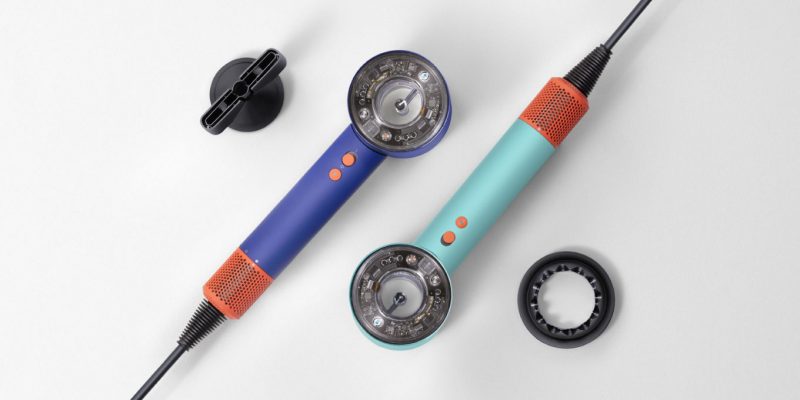
Beauty
Dyson Just Launched Its Most Intelligent Hair Dryer Yet
Get ready to upgrade your blowout game.
by : Lauren Knowles- Apr 25th, 2024
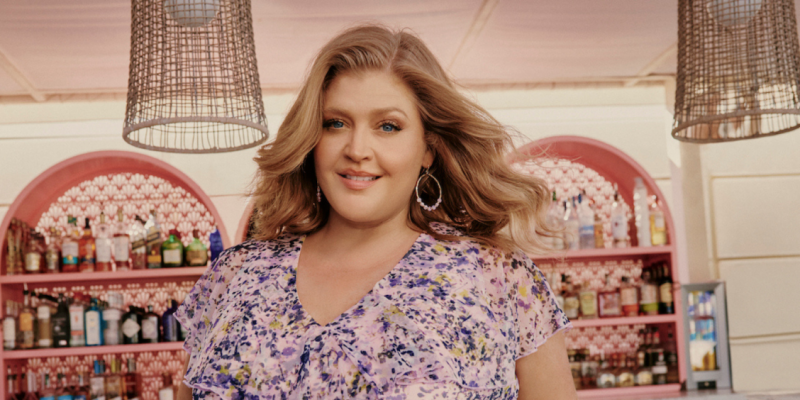
Fashion
Meredith Shaw Created a Plus-Size Summer Dress Collection That "Feels Like Candy"
The morning show host joined forces with PENN. to create a curated collection for sizes 14-32.
by : Allie Turner- Apr 25th, 2024

Beauty
Tested and Approved: Your New Hydrating Skincare BFF
This new product has all of your skin’s thirst-quenching needs covered.
by : ELLE Canada- Apr 17th, 2024

